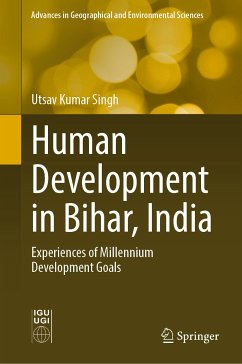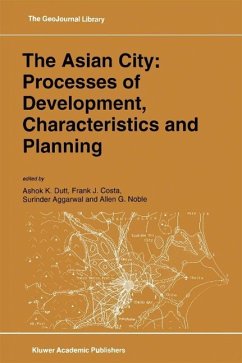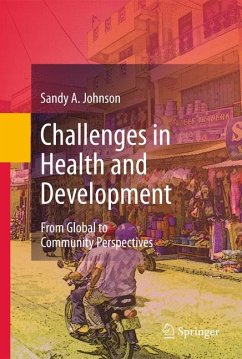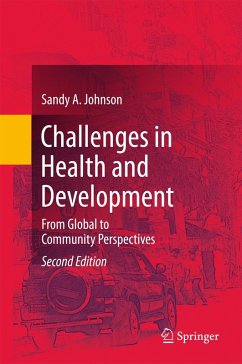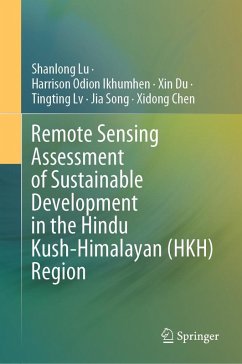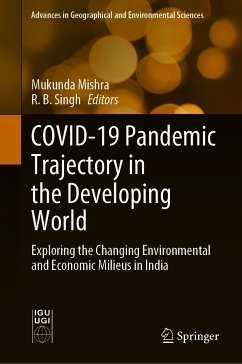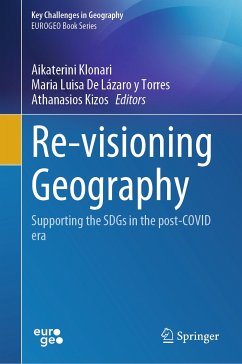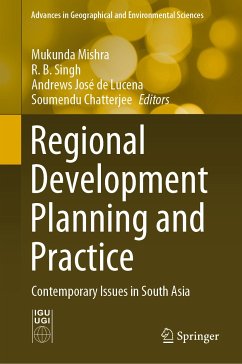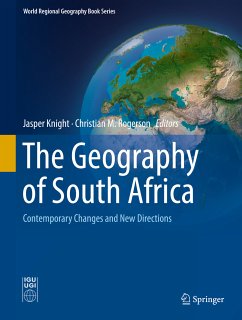
Regional Dimensions of Human Development in India and South Africa (eBook, PDF)
Through Sustainable Development Goals
Versandkostenfrei!
Sofort per Download lieferbar
120,95 €
inkl. MwSt.
Weitere Ausgaben:

PAYBACK Punkte
60 °P sammeln!
This book offers a comparative study of the progress made by two regional economies with many similarities-India and South Africa-in pursuit of human development by applying Sustainable Development Goals (SDGs). In this effort, book traverses the stages in public policy from planning to implementation, and from reach to range, in pursuit of inclusive growth and well-being for all. The book includes cross-national qualitative as well as quantitative studies and deeper analyses of India, and South Africa in respect of long-term development goals.This book attempted to solve the following puzzle:...
This book offers a comparative study of the progress made by two regional economies with many similarities-India and South Africa-in pursuit of human development by applying Sustainable Development Goals (SDGs). In this effort, book traverses the stages in public policy from planning to implementation, and from reach to range, in pursuit of inclusive growth and well-being for all. The book includes cross-national qualitative as well as quantitative studies and deeper analyses of India, and South Africa in respect of long-term development goals.
This book attempted to solve the following puzzle: despite the stupendous growth rate, why is India's performance lower than South Africa's in terms of human development indicators? This book addresses this puzzle by drawing attention to welfare approaches. These two countries have unique federal structures that uphold the unbalanced states together, and this book argues that uneven development challenges need asymmetric strategies, contrary to the axiom that the SDGs are indivisible. Further advancement of India and South Africa depends on transforming their quantity (large youth population) into quality (human capital). Both countries are also striving to create platforms to unleash human potential, which is critically examined.
This book attempted to solve the following puzzle: despite the stupendous growth rate, why is India's performance lower than South Africa's in terms of human development indicators? This book addresses this puzzle by drawing attention to welfare approaches. These two countries have unique federal structures that uphold the unbalanced states together, and this book argues that uneven development challenges need asymmetric strategies, contrary to the axiom that the SDGs are indivisible. Further advancement of India and South Africa depends on transforming their quantity (large youth population) into quality (human capital). Both countries are also striving to create platforms to unleash human potential, which is critically examined.
Dieser Download kann aus rechtlichen Gründen nur mit Rechnungsadresse in A, B, BG, CY, CZ, D, DK, EW, E, FIN, F, GR, HR, H, IRL, I, LT, L, LR, M, NL, PL, P, R, S, SLO, SK ausgeliefert werden.



